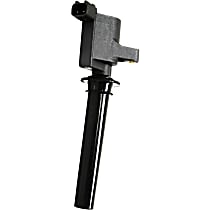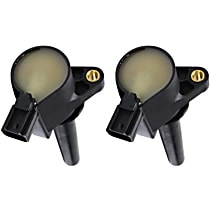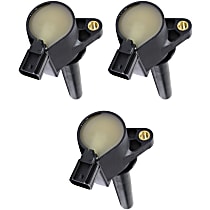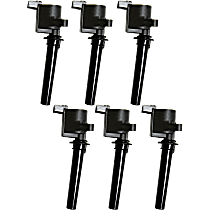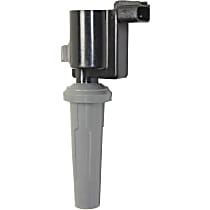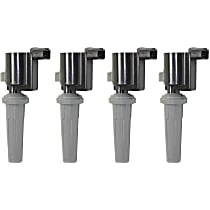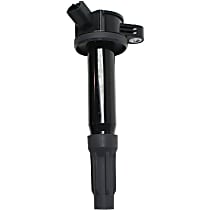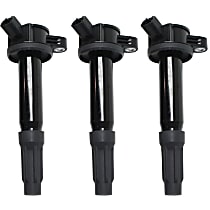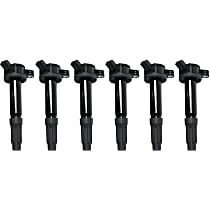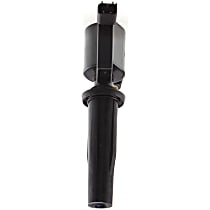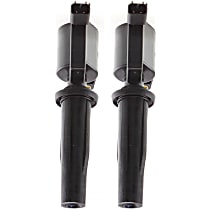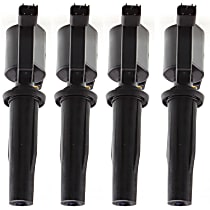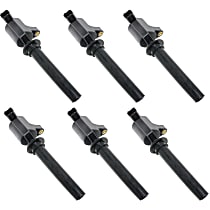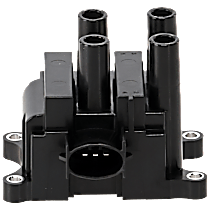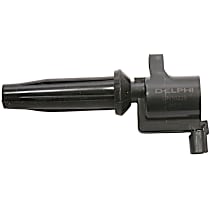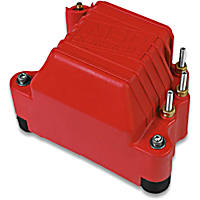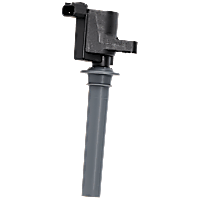{
"lazyNodes": false,
"abFitnotesFlag": false,
"abCrawlReviews": false,
"productOptionsCookie": false,
"orderDelayFlag": false,
"skipSessionCookie": false,
"covidMessage": false,
"fullTitleCookie": false,
"nrLoggerCookie": false,
"checkoutReviewCookie": false,
"productOptionSeqCookie": false,
"maintenanceFlag": false,
"bufferETACookie": false,
"multiShippingDiscountFlag": false,
"newFitmentFlag": false,
"surveyOptInFlag": false,
"crossSellFlag": false,
"skuMappingFlag": false,
"paySplitCookie": false,
"callDisableFlag": false,
"zipPaymentFlag": "u",
"hassleFreeReturn": false,
"lifetimeReplacement": false,
"cpn_off": false
}Mazda Tribute Ignition Coils
Shop Catalog
![]() WARNING: This product can expose you to chemicals including Lead, which is known to the State of California to cause cancer and birth defects or other reproductive harm. For more information go to www.P65Warnings.ca.gov.
WARNING: This product can expose you to chemicals including Lead, which is known to the State of California to cause cancer and birth defects or other reproductive harm. For more information go to www.P65Warnings.ca.gov.
![]() WARNING: This product can expose you to chemicals including Lead, which is known to the State of California to cause cancer and birth defects or other reproductive harm. For more information go to www.P65Warnings.ca.gov.
WARNING: This product can expose you to chemicals including Lead, which is known to the State of California to cause cancer and birth defects or other reproductive harm. For more information go to www.P65Warnings.ca.gov.
![]() WARNING: This product can expose you to chemicals including Lead, which is known to the State of California to cause cancer and birth defects or other reproductive harm. For more information go to www.P65Warnings.ca.gov.
WARNING: This product can expose you to chemicals including Lead, which is known to the State of California to cause cancer and birth defects or other reproductive harm. For more information go to www.P65Warnings.ca.gov.
![]() WARNING: This product can expose you to chemicals including Lead, which is known to the State of California to cause cancer and birth defects or other reproductive harm. For more information go to www.P65Warnings.ca.gov.
WARNING: This product can expose you to chemicals including Lead, which is known to the State of California to cause cancer and birth defects or other reproductive harm. For more information go to www.P65Warnings.ca.gov.
![]() WARNING: This product can expose you to chemicals including Lead, which is known to the State of California to cause cancer and birth defects or other reproductive harm. For more information go to www.P65Warnings.ca.gov.
WARNING: This product can expose you to chemicals including Lead, which is known to the State of California to cause cancer and birth defects or other reproductive harm. For more information go to www.P65Warnings.ca.gov.
![]() WARNING: This product can expose you to chemicals including Lead, which is known to the State of California to cause cancer and birth defects or other reproductive harm. For more information go to www.P65Warnings.ca.gov.
WARNING: This product can expose you to chemicals including Lead, which is known to the State of California to cause cancer and birth defects or other reproductive harm. For more information go to www.P65Warnings.ca.gov.
![]() WARNING: This product can expose you to chemicals including Lead, which is known to the State of California to cause cancer and birth defects or other reproductive harm. For more information go to www.P65Warnings.ca.gov.
WARNING: This product can expose you to chemicals including Lead, which is known to the State of California to cause cancer and birth defects or other reproductive harm. For more information go to www.P65Warnings.ca.gov.
![]() WARNING: This product can expose you to chemicals including Lead, which is known to the State of California to cause cancer and birth defects or other reproductive harm. For more information go to www.P65Warnings.ca.gov.
WARNING: This product can expose you to chemicals including Lead, which is known to the State of California to cause cancer and birth defects or other reproductive harm. For more information go to www.P65Warnings.ca.gov.
![]() WARNING: This product can expose you to chemicals including Lead, which is known to the State of California to cause cancer and birth defects or other reproductive harm. For more information go to www.P65Warnings.ca.gov.
WARNING: This product can expose you to chemicals including Lead, which is known to the State of California to cause cancer and birth defects or other reproductive harm. For more information go to www.P65Warnings.ca.gov.
![]() WARNING: This product can expose you to chemicals including Lead, which is known to the State of California to cause cancer and birth defects or other reproductive harm. For more information go to www.P65Warnings.ca.gov.
WARNING: This product can expose you to chemicals including Lead, which is known to the State of California to cause cancer and birth defects or other reproductive harm. For more information go to www.P65Warnings.ca.gov.
![]() WARNING: This product can expose you to chemicals including Lead, which is known to the State of California to cause cancer and birth defects or other reproductive harm. For more information go to www.P65Warnings.ca.gov.
WARNING: This product can expose you to chemicals including Lead, which is known to the State of California to cause cancer and birth defects or other reproductive harm. For more information go to www.P65Warnings.ca.gov.
![]() WARNING: This product can expose you to chemicals including Lead, which is known to the State of California to cause cancer and birth defects or other reproductive harm. For more information go to www.P65Warnings.ca.gov.
WARNING: This product can expose you to chemicals including Lead, which is known to the State of California to cause cancer and birth defects or other reproductive harm. For more information go to www.P65Warnings.ca.gov.
![]() WARNING: This product can expose you to chemicals including Lead, which is known to the State of California to cause cancer and birth defects or other reproductive harm. For more information go to www.P65Warnings.ca.gov.
WARNING: This product can expose you to chemicals including Lead, which is known to the State of California to cause cancer and birth defects or other reproductive harm. For more information go to www.P65Warnings.ca.gov.
![]() WARNING: This product can expose you to chemicals including Lead, which is known to the State of California to cause cancer and birth defects or other reproductive harm. For more information go to www.P65Warnings.ca.gov.
WARNING: This product can expose you to chemicals including Lead, which is known to the State of California to cause cancer and birth defects or other reproductive harm. For more information go to www.P65Warnings.ca.gov.
![]() WARNING: This product can expose you to chemicals including Lead, which is known to the State of California to cause cancer and birth defects or other reproductive harm. For more information go to www.P65Warnings.ca.gov.
WARNING: This product can expose you to chemicals including Lead, which is known to the State of California to cause cancer and birth defects or other reproductive harm. For more information go to www.P65Warnings.ca.gov.
Top Rated Products
Popular Products
Product Questions & Answers
Customer Guides
How to Diagnose a Faulty Mazda Tribute 2WD V6 Ignition Coil
The ignition coil plays a very important role as it provides the high voltage needed by the ignition system to fire the spark plugs. It serves as a high voltage transformer, stepping up the ignition system's primary voltage from 12 volts to thousands of volts. Here are some tips on how to diagnose and troubleshoot a faulty Mazda Tribute 2WD V6 ignition coil.
Short circuits
Heat and vibration can damage the coil's primary or secondary windings, causing shorts or opens. If a coil has battery voltage at its positive terminal and it is being grounded on and off by the ignition module or circuit but it is not producing a spark, the coil is defective and needs to be replaced. If the ignition module has failed more than once, it may be due to a bad ignition coil. Shorts in a coil, also known as internal arcing, can overload and damage the circuitry inside the ignition module.
Misfire code
When a coil failure occurs on a distributor ignition system, it affects all cylinders, causing the engine to not start or misfire badly when under load. However, a misfire code can be caused by an ignition, a fuel, or a compression problem, so don't jump to conclusions like assuming that a misfire means a bad coil, spark plug, or plug wire. You see, this symptom might also indicate a bad injector or a compression leak.
If the coil is shorted or open, a code may also be set for the coil on that cylinder; however, if there is no code, you should measure the coil's primary and secondary resistance with a digital ohmmeter. Inspect the spark plug to see if the misfire is due to carbon or oil buildup. Also, check the plug wire to make sure the wire's resistance is within specifications.
If all three (coil, spark plug, and plug wire) appear okay, the misfire may be due to a dirty or dead fuel injector. Check the injector's resistance and voltage supply and use a NOID light to look for a pulse from the powertrain control module (PCM). If the injector seems to be okay, identify whether the cylinder has a bad valve or a leaky head gasket by doing a compression check.
Finding Causes of Mazda Tribute Ignition Coil Problems
The life and performance of a vehicle starts with a spark and this spark is powered by the ignition coil. Without producing that much needed spark of life, the ignition will sputter and stall. When the ignition coil fails send power to the spark plugs, internal combustion cannot happen. Your Mazda Tribute would not be the power SUV it is without its ignition coil. Unfortunately, within the decade that it was in production, Mazda Tribute had a handful of ignition coil issues. Here are some issues caused by Mazda Tribute ignition coil failure.
Failure to start
You're running to the car because you're running late. You turn on the key to start the car, but it won't start. This is due to moisture seeping into a cracked ignition coil. This results in a weak spark that is not enough to start the vehicle.
Hot and cold stalling
Cracked ignition coil can also make its presence felt even when you're already on the road and the temperatures are low like when it's raining or snowing. The worst part is that you could be in the middle of the highway and your engine suddenly stops. In addition to cold temperature, weak spark can also be caused by a hot ignition coil. When the temperature is high, a bad coil can increase its resistance and produce insufficient power. This also results in stalling in the middle of a drive.
Backfires and misfires
Bad ignition coils also causes the engine to "cough" or hesitate. This is because a weak spark has difficulty reaching the gaps between the plugs, causing engine backfires or misfires. This a symptom that you can actually feel, as the misfires cause the vehicle to start shaking or jerking. If this is the case, then open your ears because misfires will be noisy as well.
Fuel burn and decreased engine power
Bad ignition coils negatively affects your vehicle's fuel economy. When the coil fails to produce a high-voltage spark, it will cause some of the cylinders to miss. This, in turn, results in a weaker engine power that burns more fuel to run and ultimately, decrease your normal gas mileage. And as the fuel burns, so shall your noses too. This is because of the burning, black smoke that will be coming out of your car's exhaust pipe.
Considered as one of the most vital parts of the vehicle, the ignition coil produces your vehicle's spark of life. Your Mazda Tribute would not be able to move without ignition coils. If you neglect them, you will find yourself one day, at the mercy of your vehicle. Misfires, abrupt stalling and decreased fuel economy are just a few of its symptoms. It is better not to wait for these issues to come up. It generally advised to replace ignition coils between 60,000 miles and 80,000 miles. However, there are a lot of factors that decreases its service life. Here are tips on how to prevent your Mazda Tribute ignition coil's untimely death.
Avoid rough rides
Although the Mazda Tribute is a durable vehicle, it is still advisable to drive cautiously as vibrations in the engine can cause the ignition coils to break. Be aware of your surroundings, avoid potholes and road hazards. If you damage the ignition coil housing, moisture can reach the coils and negatively affect its spark producing capabilities. This could result in stalling during heavy rains.
Do regular inspection and cleaning
Regular inspection doesn't have to be painstaking. You do check your ignition coils every other month. Checking the conditions of your ignition coils is very important because it's not just a hygiene issue but a safety issue as well. Remove the coils and look inside the cylinders they were in. Clear them out with a blower to rid the insides of moisture, rust or dust. Inspect the coils and wipe them with a dry rag. Never wash them as the ignition coils go bad when they get wet. Check the ignition cylinders for cracks and any signs of wear and tear.
Use a multimeter
Another way to verify if your ignition coils are working properly is to use a multimeter. Confirm whether both the primary and the secondary windings are working properly. Consult your vehicle's manual about the winding's resistance specifications. Place the multimeter on the primary winding's indicated poles. For the secondary winding, attach the multimeter on the outer pole and the main wire that goes to the distributor. Check to see if it's also within the indicated specs range. If the multimeter shows both readings are within the resistance specification's range then you're good. If not then don't risk it and just replace the coils. It's better to replace your bad ignition coil before you travel, rather than finding yourself stuck on a dark highway.
